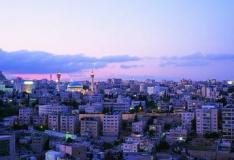Concluso progetto di cooperazione con la Giordania nel settore turistico
Esperti italiani hanno lavorato insieme ai funzionari giordani su vari progetti. All’evento di chiusura il Ministro giordano del turismo, Nayef Al-Fayez, l’Ambasciatore italiano Patrizio Fondi e un rappresentante dell’UE

Con il patrocinio del Ministro giordano del Turismo e delle Antichità, Nayef Al-Fayez, la Giordania, l’Italia e l’Unione Europea hanno celebrato lunedì 30 marzo 2015 la chiusura del progetto di gemellaggio amministrativo/Twinning “Strengthen the institutional tourism system in Jordan by enhancing the capacities of the Ministry of Tourism and Antiquities” (Sostegno al sistema turistico istituzionale della Giordania con il rafforzamento delle capacità del Ministero del Turismo e delle Antichità).
Il gemellaggio ha visto la collaborazione fra il Ministero giordano del Turismo e delle Antichità e il MiBACT, capo di un ampio partenariato di cui fanno parte Formez PA, Regione Toscana, Comune e Provincia/Città metropolitana di Firenze. Il progetto è stato finanziato dall’Unione europea e ha avuto una durata di diciotto mesi, da ottobre 2013 a oggi.
Il progetto di gemellaggio, mirato al rafforzamento delle capacità istituzionali e tecniche del Ministero giordano del Turismo e delle Antichità, ha supportato lo stesso Ministero nell’implementare strategie nel campo del turismo e della conservazione dei beni culturali, per incoraggiare una crescita sostenibile del turismo e ottimizzarne il contributo allo sviluppo socioeconomico del Paese. I risultati sono stati ottenuti attraverso esperti italiani che hanno compiuto missioni in Giordania per lavorare insieme ai funzionari locali su vari progetti, con attività formative a livello centrale e locale per i funzionari ministeriali e per le comunità locali, con visite di studio e soggiorni che i funzionari pubblici giordani hanno trascorso in Italia.
Durante la cerimonia è stata presentata una panoramica delle attività e dei risultati del progetto di gemellaggio, con speciale risalto allo sviluppo di nuovi prodotti turistici, alla gestione dei siti archeologici e in particolare del sito UNESCO di Umm ar-Rasas, alla creazione di strumenti digitali innovativi per la promozione della Giordania come destinazione turistica stabile e sicura e per l’interazione con i turisti.
Nel corso dell’evento di chiusura, al quale hanno partecipato alti appresentanti istituzionali tra cui il Ministro giordano del turismo, Nayef Al-Fayez, l’Ambasciatore italiano Patrizio Fondi e un rappresentante dell’Unione Europea, tutti gli interventi istituzionali hanno confermato l’interesse a che la collaborazione fra Italia e Giordania nel campo del turismo e della cultura sia confermata e intensificata, con particolare riferimento all’esperienza italiana nel campo delle riforme della pubblica amministrazione, nella gestione dei siti patrimonio dell’UNESCO e degli attrattori culturali e turistici.
Kick-off press release
Under the patronage of H.E. Minister of Tourism and Antiquities Nayef Hmeidi Al-Fayez, The Hashemite Kingdom of Jordan, the Republic of Italy and the European Union are officially closing the Twinning Project “Strengthen the institutional tourism system in Jordan by enhancing the capacities of the Ministry of Tourism and Antiquities” on 30th March 2015.
The Twinning is a cooperation agreement between the Ministry of Tourism and Antiquities of the Hashemite Kingdom of Jordan and the Ministry for Cultural Heritage and Activities and Tourism in Italy. The project was funded by the European Union and has been implemented during 18 consecutive months, from October 2013 to this day.
By strengthening the institutional and technical capacities of the Ministry of Tourism and Antiquities, the Twinning Project has supported the Ministry to build its capacity in implementing strategies and actions in tourism, such as the National Tourism Strategy 2011-2015, to enhance the sustainable growth of tourism in Jordan and to optimize tourism contribution to socioeconomic development. The results have been achieved through visiting experts to Jordan from Italy who have been working side by side with the Jordanian officials, through training activities on different topics at central and local level, both for the Minister’s employees and for the local communities representatives, and through study visits and secondments of Jordanian officers to Italy.
The high officials key speakers of the kick-off ceremony expressed their support to the development process in Jordan: Ms. Imma Roca i Cortés
Chargée d’Affaires a.i., Delegation of the European Union to the Hashemite Kingdom of Jordan, The Ambassador of the Republic of Italy, H.E. Patrizio Fondi, the Minister of Tourism and Antiquities, H.E. Nayef Hmeidi Al-Fayez. The two Project Leaders of the Twinning, the Secretary General of Ministry of Tourism and Antiquities, H.E. Issa Gammoh, the Head of International Relations at the Ministry for Cultural Heritage and Activities and Tourism in Italy, Ms. Rosanna Binacchi, then proceeded to an overview of the activities conducted and of the results obtained. The discussion also greatly profited by contributions by the Director General of the DoA –Department of Antiquities, H.E. Dr. Munther Jamhawi, and by the Director of JTB–Jordan Tourism Board, H.E. Dr. Abd Al Razzaq Arabiyat.
During the ceremony an overview of the Twinning Project was presented, highlighting the benefits of a profound and knowledgeable cooperation between the two countries under the auspices of the European Union. Jordanian and Italian experts worked together in the preparation of a series of projects in the field of tourist product development, of site management with particular reference to the World Heritage listed site of Umm ar-Rasas, of innovative digital tools for the promotion of tourism destinations and interaction with tourists.
All speakers expressed their hopes that the cooperation between Jordan and Italy in the fields of Heritage and Tourism will be reinforced, making the most of the Italian long-term experience in designing and implementing reform processes for public administrations, in the management of World Heritage sites and, more generally, of archaeological and tourist sites.
Città Metropolitana di Firenze

 Home
Home